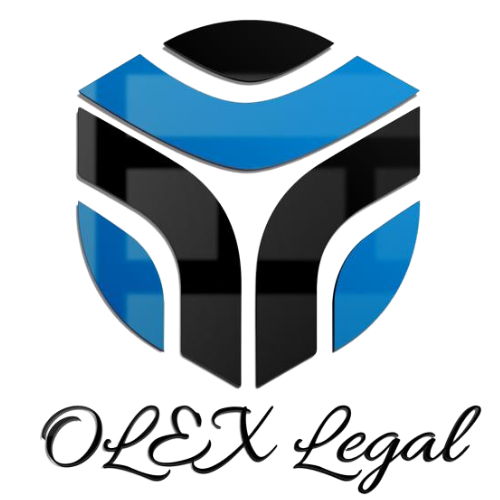
13 Nov Navigating the Complexities of Foreclosure Purchases in Alberta
Navigating the complexities of foreclosure purchases in Alberta’s residential real estate market presents a unique set of challenges and opportunities. This pursuit, often laden with misconceptions, requires a deep understanding of the intricate legal and procedural landscape that governs these transactions. Unlike the foreclosure market in the United States, where properties often sell at steep discounts, the Canadian system, particularly in Alberta, is designed to ensure that foreclosed properties are sold at a value close to their actual market worth. This fundamental difference sets the stage for a distinctive investment landscape in Alberta, one that demands careful consideration and strategic planning. Prospective buyers must approach this market armed with knowledge and an appreciation for the nuances that define it.
The Alberta foreclosure market’s uniqueness stems from its legal framework and market dynamics, which differ significantly from those in other regions. This article aims to provide a comprehensive guide for understanding and navigating these complexities, offering insights into the methods of acquisition, risks, rewards, and the crucial role of professional guidance in making informed decisions. Whether you’re a seasoned investor or a first-time buyer, understanding these elements is essential in making a successful foreclosure purchase in Alberta’s real estate market.
Comparative Analysis: Alberta vs. U.S. Foreclosure Markets
The foreclosure market in Alberta operates under a legal and procedural framework that is markedly different from that of the United States. In the U.S., foreclosure properties are often perceived as opportunities to purchase below market value, largely due to the quick liquidation approach adopted to recover debts. However, in Alberta, the process is designed to preserve the value of the property and ensure it sells for a price that closely reflects its true market worth.
One of the key differences lies in the legal processes governing foreclosures. In Alberta, foreclosures are predominantly handled through a judicial sale process. This means that the sale of a foreclosed property must be approved by the court, ensuring that the property’s value is assessed fairly and transparently. This judicial oversight is aimed at protecting both the interests of the lender and the borrower, often resulting in sales prices that are more aligned with current market values.
In contrast, the U.S. system, which often relies on non-judicial foreclosures in many states, allows for a quicker sale process, typically at auction. These sales can sometimes result in properties being sold for less than their market value, especially in cases where there is limited interest or bidding at the auction.
The implications of these differences are significant for investors and buyers. In Alberta, while you might not find the steep discounts seen in the U.S. market, you are more likely to purchase a property that reflects its true value, reducing the risk of overpaying. Moreover, the Alberta system’s transparency and fairness can provide a more stable investment environment, albeit with potentially less room for bargain deals.
Understanding these differences is crucial for anyone considering entering the foreclosure market in Alberta. It requires a shift in expectations and strategies, particularly for those accustomed to the U.S. foreclosure market’s dynamics.
Detailed Methods of Acquiring Foreclosure Properties in Alberta
Foreclosure properties in Alberta can be acquired primarily through two methods, each with its own set of procedures and considerations.
1. Judicial Sale:
- Process Overview: In a judicial sale, interested buyers make an offer on a property undergoing foreclosure. This offer is then subject to court approval. It’s a more transparent process, as the court supervises the sale to ensure fairness and that the property is sold for its market value.
- Making an Offer: When making an offer in a judicial sale, it’s crucial to be aware that the court will review it for fairness. Offers should be competitive and well-researched, reflecting the property’s current market value.
- Finalizing the Sale: Once the court approves an offer, the sale is confirmed. This process results in the transfer of the title to the buyer, with the notable aspect that the bank never holds the title, reducing potential complications.
A key distinction in judicial sales is that the borrower retains a right of redemption until the sale is finalized. This means the original homeowner has the opportunity to bring their mortgage current and keep the property, even after an offer is made. As a result, a potential purchase can fall through if the borrower exercises this right at the last moment. For buyers, this introduces a layer of uncertainty unique to judicial foreclosure sales, reinforcing the importance of staying informed and working closely with a knowledgeable real estate lawyer throughout the process.
2. Direct Purchase from the Bank:
- When It Occurs: This method comes into play when no suitable buyer is found during the judicial sale process. In such cases, the court may transfer the property’s title to the lending bank.
- Purchasing from the Bank: Once the bank holds the title, it typically lists the property for sale, much like any other real estate listing. Interested buyers can then approach the bank directly to negotiate a purchase.
- Considerations: Purchasing directly from a bank can be a more straightforward process compared to judicial sales. However, buyers should still conduct thorough due diligence and be prepared for potentially less flexibility in terms and conditions.
Whether buying through judicial sale or directly from the bank, many of the risks associated with foreclosure properties apply equally to both scenarios. The main difference lies in whom you purchase the property from and the specific legal rights that may still be in play, such as the right of redemption. It’s always wise to consult a real estate lawyer for advice on your particular situation, as the nuances can be significant and the process may change depending on individual circumstances.
Risks and Challenges in Depth
Investing in foreclosure properties in Alberta, while potentially rewarding, comes with its own set of uncertainties and challenges. Understanding these risks is crucial for any prospective buyer to make informed decisions.
1. Lack of Guarantees:
- Property Condition: One of the most significant risks associated with foreclosed properties is their unknown condition. These properties are often sold “as is,” meaning the buyer takes on all risks related to the property’s condition. This necessitates thorough inspections to assess any potential repair or renovation needs.
- Title Issues: There may be complications related to the property’s title, such as unresolved liens or legal claims. Title insurance and a meticulous review of the property’s legal history are vital to mitigate these risks.
2. Inflexibility in Offers:
- Judicial Sales: The process of judicial sales, while fair, often lacks flexibility. Offers made are usually final and binding, leaving little room for negotiation or adjustment based on findings from due diligence or financing arrangements.
- Direct Purchases: Even when purchasing directly from the bank, there may be less flexibility in terms and conditions compared to traditional real estate transactions.
3. Potential Delays:
- Legal and Procedural Complexities: The unique legal and procedural aspects inherent in foreclosures can result in significant delays. These may arise from the court’s involvement in judicial sales or from complexities in transferring the title from the bank.
- Impact on Buyers: For buyers, these delays can impact financing arrangements and investment timelines, requiring a degree of patience and flexibility not typically necessary in standard real estate transactions.
4. Misconceptions:
- Market Value Misunderstanding: A common misconception is that foreclosed properties are always sold below market value. In Alberta, due to the judicial oversight, properties are more likely to be sold at prices reflecting their actual market worth.
- Investment Expectations: Investors need to adjust their expectations accordingly, understanding that while bargains can be found, they are not as prevalent as in some U.S. markets.
Navigating these risks and challenges requires a comprehensive understanding of the foreclosure process, a readiness to undertake thorough due diligence, and a strategic approach to investment. By being aware of these potential pitfalls, buyers can better prepare themselves for the realities of investing in Alberta’s foreclosure market.
Rewards and Opportunities
Despite the inherent risks, investing in foreclosure properties in Alberta can offer significant rewards and opportunities for the astute buyer.
1. Potential for Lower Costs:
- Competitive Market Deals: While the aim is to maintain market value, in competitive market situations, buyers might still find properties at more advantageous prices compared to traditional sales.
- Cost-Benefit Analysis: The potential for lower purchase prices, especially for properties needing renovations, can result in beneficial cost savings for buyers who are prepared to invest in improvements.
2. Opportunities for Property Flippers:
- Renovation and Resale: Foreclosure properties can be ideal for property flippers. These properties, often in need of repair or renovation, offer a chance to add significant value through improvements and subsequently sell at a higher price.
- Diverse Property Options: The foreclosure market in Alberta provides a variety of property types, from residential homes to commercial spaces, offering diverse opportunities for different investment strategies.
3. Financial Advantages:
- Clearing of Liens and Debts: In many cases, the process of foreclosure can result in the clearing of certain liens, back taxes, and unpaid loans associated with the property. This cleansing effect can make these properties more financially attractive.
- Investment Leverage: The potential financial gains, combined with the relative stability of Alberta’s real estate market, can offer a solid foundation for leveraging these properties as part of a broader investment portfolio.
4. Market Dynamics:
- Long-term Value: The Alberta real estate market, known for its stability and gradual growth, can provide long-term value appreciation for foreclosure properties, especially for buyers with a long-term investment horizon.
- Rental Market Opportunities: For those not interested in flipping, the robust rental market in Alberta can offer consistent rental income streams, particularly in urban areas with high demand.
While these opportunities are attractive, it is important for investors to approach foreclosure purchases with a balanced view, considering both the potential rewards and the risks involved. With the right strategy and due diligence, foreclosure properties in Alberta can be a valuable addition to an investment portfolio.
Is Buying a Foreclosure in Alberta Worth It?
Ultimately, whether purchasing a foreclosure property in Alberta is worthwhile depends on your individual investment goals, risk tolerance, and willingness to undertake due diligence. Unlike some markets in the U.S. Where distressed properties are routinely sold at steep discounts, Alberta‘s judicial foreclosure process tends to keep sale prices closer to fair market value. This means deep bargains are less common, but there are still strategic opportunities for buyers who approach the process thoughtfully.
Consider the following:
- Value Assessment: Take a hard look at the property’s condition and the associated risks, such as unknown repairs or legal complications. Factor those into your calculations to ensure you’re not overpaying relative to what you’re getting.
- Risk and Reward: Weigh the potential for savings against the added complexities—such as longer closing periods and less conventional negotiation dynamics.
- Market Reality: Remember that, in Alberta, foreclosures are not synonymous with bottom-dollar deals. However, for buyers who are thorough and patient, there can be value—especially in properties that require renovations or serve long-term investment strategies.
- Professional Advice: Enlisting the guidance of experienced real estate professionals, home inspectors, and legal advisors can help clarify uncertainties and protect your interests throughout the process.
In summary, buying a foreclosure in Alberta can be a smart move for those equipped with the right information, resources, and a well-calibrated sense of the market. Just be sure to approach with realistic expectations and a strong plan—foreclosure investing rewards those who do their homework.
Understanding the Foreclosure Process in Alberta
The foreclosure process in Alberta is a multi-stage procedure, each with its own nuances and implications for potential buyers. Understanding these stages is crucial for navigating the market effectively.
1. Initial Missed Payments:
- Commencement of Foreclosure: Foreclosure proceedings typically do not start immediately after a missed payment. In most cases, lenders allow a grace period, usually between 3-6 months, for borrowers to catch up on missed payments.
- Notice Period: During this time, the lender will send notices to the borrower, indicating the impending foreclosure action if payments are not resumed.
2. Judicial vs. Power of Sale:
- Judicial Foreclosure: In Alberta, the most common method is judicial foreclosure, where the process is overseen by a court. This method ensures a fair and transparent process for both the borrower and the lender.
- Power of Sale: Although less common in Alberta, the power of sale allows the lender to sell the property without court intervention after a certain period. This method is quicker but less prevalent.
3. Court Involvement and Auctions:
- Judicial Process: In judicial foreclosures, the court reviews the property sale to ensure it’s sold for a fair price. This includes approving the sale price and any terms of the sale.
- Public Auctions: In some cases, the property may be sold at a public auction, where it is sold to the highest bidder. This process is more common in non-judicial foreclosures.
4. Finalizing the Foreclosure:
- Transfer of Title: Once the foreclosure process is complete, the title is transferred to the new owner. In judicial sales, this occurs after court approval. In power of sale, the title is transferred upon sale completion.
- Clearance of Liens and Debts: The foreclosure process typically clears the property of any previous liens or debts, making it a safer investment.
Understanding the intricacies of these stages is essential for buyers. It helps in timing the investment, preparing the required documentation, and ensuring compliance with all legal requirements. The process may be lengthy and complex, but a well-informed approach can lead to a successful purchase.
Professional Guidance and Informed Decision-Making
Navigating the foreclosure market in Alberta requires not just a thorough understanding of the process but also informed decision-making, often facilitated by professional guidance.
1. The Role of Real Estate Experts:
- Market Knowledge: Real estate experts, particularly those experienced in foreclosures, can provide invaluable insights into market trends, property values, and potential investment opportunities.
- Navigational Assistance: They can guide buyers through the complexities of the foreclosure process, from identifying potential properties to making offers and completing transactions.
2. Legal Advisors:
- Legalities and Compliance: Legal advisors play a critical role in ensuring that all aspects of the foreclosure purchase are compliant with provincial laws and regulations.
- Risk Mitigation: They help in understanding and mitigating risks associated with title issues, contractual obligations, and any legal intricacies specific to foreclosure transactions.
3. Tailored Advice for Buyers:
- Assessing Individual Circumstances: Professionals can offer advice tailored to the buyer’s financial situation, investment strategy, and risk tolerance.
- Strategic Planning: This includes helping buyers to determine the right type of property to invest in, the timing of the investment, and strategies for bidding or negotiating.
4. Importance of a Support Team:
- Comprehensive Support: Assembling a team of real estate agents, lawyers, and financial advisors can provide a comprehensive support system for navigating the foreclosure market.
- Collaborative Decision-Making: This team approach ensures that all aspects of the purchase are considered, from financial implications to legal ramifications.
Engaging with professionals not only aids in making informed decisions but also provides a safety net against the potential pitfalls of foreclosure investments. Their expertise can be the difference between a successful investment and a costly mistake.
Negotiation Strategies and Decision Factors
Effective negotiation is a key component in foreclosure transactions, requiring a deep understanding of both the seller’s perspective and the unique dynamics of the foreclosure market.
1. Understanding the Seller’s Perspective:
- Lender’s or Court’s Objectives: In foreclosure sales, the seller is often a bank or a court. Their primary objective is to recover the outstanding loan amount while ensuring fairness and market value compliance.
- Limited Flexibility: This objective can limit their flexibility in negotiations. Offers close to the market value with minimal contingencies are often more favorably received.
2. Crafting an Effective Offer:
- Competitive Pricing: Offers should be competitively priced, reflecting an understanding of the property’s market value and condition.
- Fewer Contingencies: Reducing contingencies, such as financing or inspection conditions, can make an offer more attractive, but this also increases the buyer’s risk.
3. Financing and Due Diligence:
- Pre-approval for Financing: Having mortgage pre-approval can strengthen the buyer’s position, demonstrating financial readiness to complete the purchase.
- Thorough Inspections: Conducting comprehensive property inspections prior to making an offer is crucial, given the ‘as is’ nature of foreclosure sales.
4. Decision Factors for Buyers:
- Risk Assessment: Buyers must assess their own risk tolerance, especially in terms of property condition and potential legal issues.
- Investment Strategy: Aligning the purchase with the buyer’s overall investment strategy, whether it’s for flipping, renting, or long-term appreciation, is vital.
5. Timing and Patience:
- Market Timing: Understanding the market dynamics and timing the offer can be critical, especially in competitive foreclosure markets.
- Patience in the Process: The procedural and legal aspects of foreclosures can lead to delays. Patience and flexibility are essential traits for buyers in this market.
Effective negotiation in foreclosure purchases is not just about the final price; it’s about understanding the complexities of the process, making well-informed offers, and aligning the purchase with personal investment goals.
Case Studies and Real-Life Examples
To illustrate the complexities and opportunities in Alberta’s foreclosure market, let’s examine a few case studies:
1. Successful Judicial Sale Purchase:
- Background: A buyer identified a residential property in Calgary undergoing judicial foreclosure. The property required moderate renovations but was in a desirable neighborhood.
- Process: After conducting a thorough inspection and market analysis, the buyer submitted a competitive offer, which was accepted by the court.
- Outcome: The purchase price was slightly below market value, allowing the buyer to invest in renovations and eventually resell the property at a profit.
2. Direct Purchase from a Bank:
- Background: An investor targeted a foreclosed commercial property in Edmonton that had been transferred to a bank after no suitable buyer was found in a judicial sale.
- Negotiation: Leveraging their market knowledge and a strong financial position, the investor negotiated a purchase price directly with the bank.
- Outcome: The investor converted the property into a high-demand rental space, capitalizing on Edmonton’s robust rental market.
These examples demonstrate the potential for success in Alberta’s foreclosure market, provided buyers are well-informed, conduct thorough due diligence, and approach the process strategically.
Market Dynamics and Future Outlook
Alberta’s foreclosure market is influenced by various factors, including economic conditions, housing market trends, and regulatory changes. Currently, the market shows signs of stability with a gradual increase in property values. The demand in major cities like Calgary and Edmonton remains strong, driven by their growing populations and economic recovery.
Looking ahead, experts predict a steady market, with potential fluctuations based on broader economic trends. Investors and buyers are advised to stay informed about these dynamics and consider the long-term implications of their investments.
Conclusion
The foreclosure market in Alberta offers distinct opportunities that differ significantly from those in the U.S. market. Prospective buyers need to approach these opportunities with a thorough understanding of the risks, complexities, and nuances involved. With careful consideration, strategic planning, and sound professional advice, foreclosure purchases in Alberta can be a valuable addition to an investment portfolio. This market, while challenging, provides a unique avenue for property acquisition that, when navigated successfully, can yield significant rewards.



















































